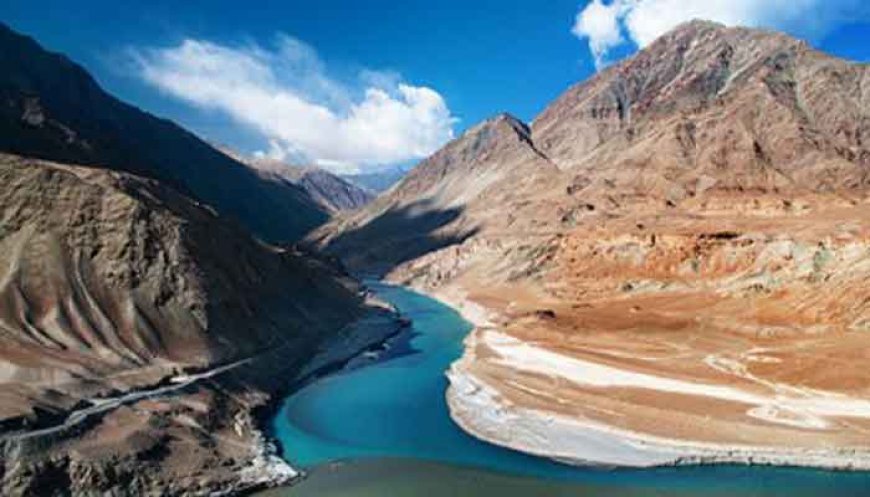India gives notice to Pakistan to revise Indus Water Treaty
India has sent a notice to Pakistan regarding the Indus Water Treaty (IWT). This notice was sent to Pakistan on January 25, the Indian government said on Friday (January 27).

The notice said that India has been complying with all the terms of this agreement for the last 62 years. But there was no option but to send a notice to the behavior of Pakistan. However, the letter also told Pakistan that India is forever responsible for the water agreement. But Pakistan's behavior is against the agreement.
Basically, the tangled Indus Water Treaty is a long-standing issue between the two neighboring countries. For 62 years, complications have continued with this agreement. The agreement falls under the Inland Water Transport Authority (IWT).
It is known that on January 25, India sent a notice to Pakistan to change the Indus Water Treaty. That notice has been sent to Pakistan through the Commissioner concerned.
Incidentally, the Indus River originates in the Himalayas and flows through India to Pakistan. It crosses the vast plains of the country and merges into the Arabian Sea. Indus Water Treaty was signed between India and Pakistan in September 1960. Indian Prime Minister Jawaharlal Nehru and Pakistani President Mohammad Ayub Khan were signing the agreement. The World Bank brokered the deal.
In the northern part of India, Kashmir and Ladakh region, many rivers originate from different parts of the Himalayas and flow through the region. Some of these rivers flow west and fall into Pakistan. Some rivers flow to the east. Agreements were made between the two countries regarding the water distribution of these rivers and various projects on the rivers.
According to the agreement, India will be able to use the water of the eastward flowing rivers like Bipasha, Irrawaddy and Shatru without any hindrance. But, rivers like Indus, Chandrabhaga and Jhelum flowing in the west will get 20 percent of water to India and 80 percent to Pakistan. In the agreement, India has the right to build hydropower or various projects on these rivers. Pakistan also has the right to object to the project if necessary.
The issue between the two countries is over the Kisan Ganga hydroelectric project on the Jhelum river and the Ratle hydroelectric project on the Chandrabhaga river in Jammu and Kashmir. Pakistan believes that the 330 MW Kisan Ganga Hydroelectric Project and the 850 MW Ratle Hydroelectric Project will block the course of the river. Because 80 percent of Pakistan is dependent on the Indus River and its tributaries. If it gets blocked somehow, agriculture will be disrupted, water shortage may occur. However, India claims that the two hydropower projects fall under the 'Run of the River' scheme. As a result, there is no question of storing river water.
The matter has been pending since 2015. Later, between 2017 and 2022, five meetings of the Standing Indus Commission did not resolve anything.
On the other hand, India has alleged that Pakistan has repeatedly violated the terms of Indus water sharing. They said that as Pakistan was repeatedly told to do nothing, a notice was sent to the river commission in that country asking for a change in the Indus water agreement. India wants, within the next 90 days, the two countries sit in talks to change the water agreement. That is why India sent a notice to Pakistan on January 25.
What's Your Reaction?











































